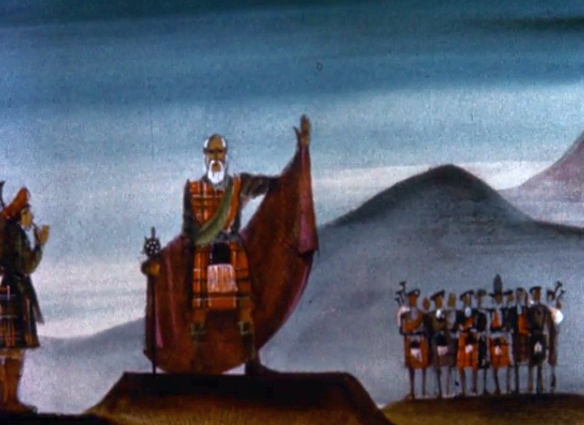In the early 1960s, North Carolina’s state government created a Film Board to “portray and illuminate the people, problems, themes, and life of the State” (Oettinger 1964/1965, p. 1). Championed by Governor Terry Sanford, the Board operated from 1962-1965 and created 19 films. As part of our recent audio-visual project, the Charlotte Mecklenburg Library and the North Carolina Collection at UNC-Chapel Hill’s Wilson Library contributed eight of these films for digitization.
During the Board’s operation, “ideas and requests for the films came from various state departments, individuals on the Governor’s staff or historical associations from around the state” (Ferrara 1981, p. 23). Production costs for each film averaged $30,000. James Beveridge, a filmmaker from Canada, was brought in to head the Board. (The State Archives has shared film clips from Beveridge online as well.)
The Board aimed to produce films that were documentary in nature, looking at different industries, locations, or segments of the population. Some addressed politically charged issues; the Minority Report series is a stark exploration of race relations. “Goodbye to Carolina,” was coordinated with the help of the Intercollegiate Council for Human Rights, chaired by then A&T student Jesse Jackson.
Below is a list of the films produced by the Board that are currently available on DigitalNC*:
- The Ayes Have It (1963) A behind-the-scenes look at the North Carolina General Assembly.
- Minority Report: A Series Stating the Opinions and Experiences of Negro Students in North Carolina
- Goodbye to Carolina (1964) Interviews with North Carolina A&T College (now University) about their reasons for seeking jobs outside of North Carolina.
- A Knocking at the Gate (1964) Interviews with North Carolina College (now North Carolina Central University) students about civil rights.
- North Carolina’s Tribute to President John F. Kennedy (1964) Covers the memorial ceremonies for the late President held at UNC-Chapel Hill.
- The Road to Carolina (1963) Commissioned by the NC Tercentenary Commission and created for eight graders, this illustrated film recounts the first hundred years of the state’s colonial history.
- The Search for Excellence (1965) Follows rural residents’ experiences as communities around the state were consolidating educational resources and schools to a centralized model.
- The Vanishing Frontier (1963) The state’s Appalachian communities are documented through first-hand accounts with citizens, revealing the area’s “poverty and promise” (Ferrara, p. 28).
- Welcome to Work: The Siler City Story (1964) Describes the changes in Siler City as it transitioned from an agricultural-based to an industrial-based economy.
- Updated March 21, 2019
- Big Fish, Little Fish (1965) Discusses the challenges and opportunities facing North Carolina’s coastal fishing industry.
- The Piedmont Crescent (1968) Shows the development of the North Carolina Piedmont from geographical and industrial perspectives.
- Why We Kill (1965) Six men discuss their reckless driving.
- North Carolina, The Goodliest Land (1970) A “mood poem” about North Carolina, including scenes from all seasons.
- Food and the Future (1964) Looks at the food processing industry from farmer to consumer.
- Mirror of the Past: Tryon Palace (1964) Describes the history and restoration of North Carolina’s Tryon Palace.
It’s interesting to see the film topics chosen during this time period. Instead of shying away from hot button issues or glossing over the widespread demographic, economic, and social changes of the era, the Film Board tackled them with a freer hand than might be expected. Such ambitious and frank efforts eventually contributed to the Board’s dissolution.
You can view additional items on DigitalNC from the Charlotte Mecklenburg Library and the University of North Carolina at Chapel Hill.
Notes
*The other films are: Land of Beginnings; Minority Report: Vote and the Choice is Yours; Minority Report: We’re Not Alone; Nine Months To Go; The Outer Banks (possibly lost, according to Ferrara)
References
Ferrara, Susan E. “The Demise of the North Carolina Film Board: Public Policy Implications.” M.A. thesis., University of North Carolina at Chapel Hill, 1981.
Oettinger, Elmer. “The North Carolina Film Board: A Unique Program in Documentary and Educational Film Making.” The Journal of the Society of Cinematologists 4/5 (1964/1965): p. 55-65.


